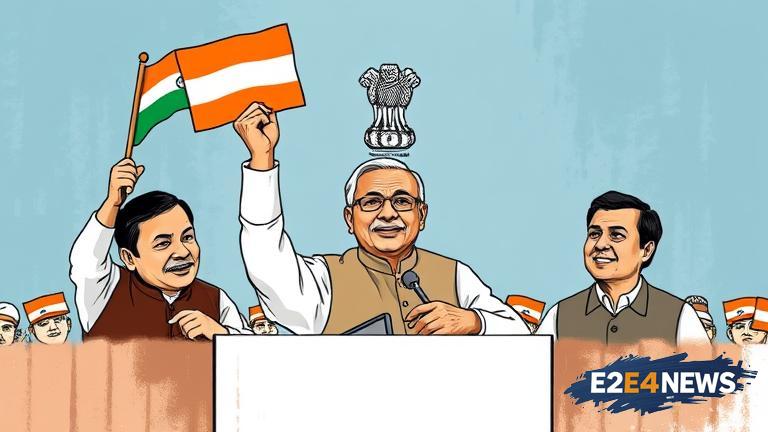The opposition parties in India have been vocal about their criticism of the Election Commission, citing various reasons for their dissatisfaction. However, according to Gajendra Singh Shekhawat, the criticism is largely driven by the opposition’s anticipation of defeat in the upcoming polls. Shekhawat, a prominent figure in the ruling party, believes that the opposition is trying to divert attention from their own shortcomings by blaming the Election Commission. The Election Commission has been under scrutiny for its handling of various electoral processes, including the use of electronic voting machines and the implementation of the model code of conduct. Despite these criticisms, the Election Commission has maintained that it is committed to ensuring free and fair elections. The opposition parties, on the other hand, have been alleging that the Commission is biased towards the ruling party. The criticism of the Election Commission is not limited to the opposition parties, with some civil society groups and individuals also expressing concerns about the Commission’s independence and impartiality. The Election Commission has been responding to these criticisms by reiterating its commitment to the democratic process and emphasizing the measures it has taken to ensure the integrity of the electoral process. The debate over the Election Commission’s role and performance is likely to continue in the coming weeks and months, as the country prepares for upcoming state and national elections. The opposition parties are likely to continue their criticism of the Commission, while the ruling party will likely defend the Commission’s actions. The Election Commission, meanwhile, will need to navigate these criticisms while ensuring that the electoral process is conducted in a fair and transparent manner. The outcome of the upcoming elections will likely have significant implications for the country’s political landscape, and the role of the Election Commission will be closely watched by all stakeholders. The Commission’s ability to withstand criticism and ensure the integrity of the electoral process will be crucial in maintaining the trust of the electorate. In recent years, the Election Commission has taken several steps to improve the electoral process, including the introduction of voter verification programs and the implementation of stricter campaign finance regulations. Despite these efforts, the Commission still faces significant challenges, including the need to address concerns about electoral violence and the influence of money in politics. The Commission will need to balance these competing demands while ensuring that the electoral process is conducted in a manner that is fair, transparent, and accountable to the people. The upcoming elections will provide a critical test of the Election Commission’s ability to navigate these challenges and ensure the integrity of the democratic process.
